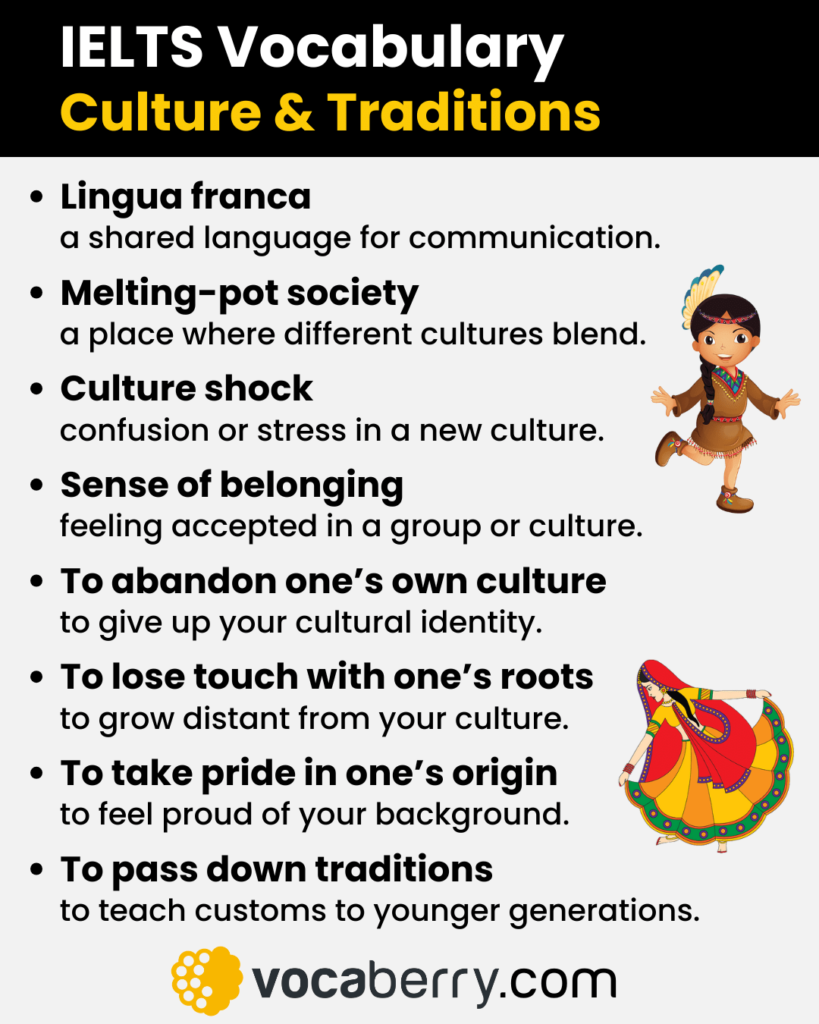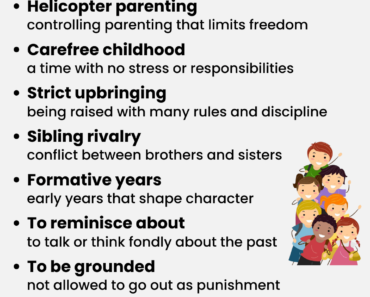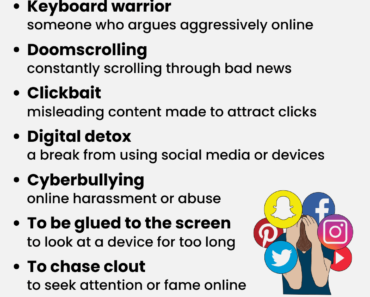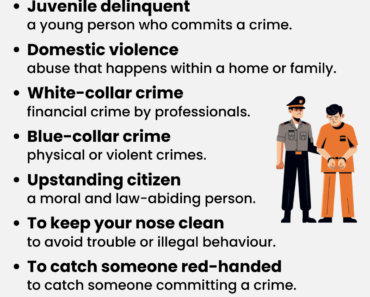
Culture and traditions are common topics in the IELTS Speaking test. Examiners may ask you about your cultural background, local customs, traditional celebrations, or how cultural practices have changed between generations. In this guide, you’ll learn useful IELTS vocabulary for culture and traditions with clear definitions, followed by IELTS Speaking Part 1, Part 2, and Part 3 questions with sample answers.
IELTS Vocabulary for Culture and Traditions
Here is some useful IELTS vocabulary for talking about culture and traditions with clear definitions. These words and phrases will help you give better answers in the IELTS Speaking test.
- Culture – the way of life, customs, and beliefs of a group of people.
- Tradition – a custom or belief passed down through generations.
- Ritual – a ceremony or repeated action done in a specific cultural context.
- Subculture – a smaller cultural group within a larger society.
- Folklore – traditional stories, beliefs, or customs of a culture.
- Handicrafts – handmade items that reflect local culture or tradition.
- Traditional attire – clothing worn for cultural or ceremonial reasons.
- Close-knit community – a strongly connected group.
- Lingua franca – a common language used between different native speakers.
- Multiculturalism – support for different cultures living together.
- Globalisation – worldwide connection that affects culture and economy.
- Melting-pot society – a society where cultures mix and blend together.
- Cultural identity – a sense of belonging to a specific culture.
- Cultural diversity – the presence of many different cultures in one society.
- Cultural heritage – the traditions, art, and history passed from earlier generations.
- Cultural preservation – protecting cultural heritage and traditions from being lost.
- Cultural exchange – when people share traditions from different countries.
- Cultural values – beliefs and principles shared by members of a culture.
- Cultural norms – accepted standards of behavior within a society.
- Cultural awareness – understanding and appreciating different cultures.
- Culture shock – feeling confused or anxious in a new culture.
- Cultural diffusion – the spread of ideas or customs between cultures.
- Cultural assimilation – adopting the language or customs of another culture.
- Cultural integration – blending of different cultures into one society.
- Cultural attraction – a place that draws visitors because of its cultural significance.
- Cultural pride – a strong sense of respect and appreciation for one’s culture.
- Cultural erosion – loss of traditional culture over time.
- Cultural revival – the return or renewed interest in traditional practices.
- Cultural stereotypes – oversimplified ideas about a group’s cultural traits.
- Cultural barriers – things that prevent understanding between cultures.
- Cultural appropriation – using another culture’s elements disrespectfully.
- Cultural patrimony – valuable cultural property belonging to a group or nation.
- Cultural degradation – weakening or loss of traditional culture.
- Indigenous culture – beliefs and customs of native people.
- Indigenous knowledge – traditional wisdom from native communities.
- Ethnic group – people who share a common language, culture, or ancestry.
- Folk traditions – old customs, stories, music, or dance passed through generations.
- Generational gap – differences in views or lifestyles between age groups.
- Cross-cultural communication – interaction between people of different cultures.
- Historic site – a place important in cultural or national history.
- Mythology – traditional stories that explain cultural beliefs.
- Folkways – everyday traditions or informal cultural rules.
- Stereotype – a simplified and unfair belief about a group.
- Ancient customs – traditions that have existed for a long time.
- Local cuisine – food that is typical of a particular place or region.
- Traditional crafts – handmade art or objects that represent a culture.
- Patriotic celebration – a festival that honors a country’s history or independence.
- Traditional cuisine – food prepared using old methods and recipes.
- Vanishing traditions – customs that are slowly disappearing.
- Deep-rooted traditions – long-established and strongly held cultural practices.
- Multicultural society – a community with many different cultures.
- Traditional lifestyle – a way of living based on long-established customs.
- Festival atmosphere – the lively and joyful mood during traditional celebrations.
- Ceremonial practice – a formal tradition often done for religious or cultural reasons.
- Oral tradition – cultural knowledge passed through spoken stories and expressions.
- Ingrained in culture – deeply embedded in a group’s way of life.
- Sense of belonging – feeling part of a group or culture.
- Sense of alienation – feeling isolated or separated from society or culture.
- The fabric of society – the underlying structure of a culture.
- The total loss of cultural identity – complete disconnection from one’s culture.
- The growing influence of Western culture – increasing spread of Western lifestyles.
- To observe a tradition – to follow or continue a traditional practice.
- To preserve traditions – to maintain and protect cultural customs.
- To pass down traditions – to teach customs to younger generations.
- To preserve one’s heritage – to protect and maintain one’s cultural background.
- To embrace other cultures – to accept and appreciate cultural diversity.
- To strengthen cultural bonds – to build closer cultural connections.
- To respect cultural differences – to accept and value other cultures.
- To break with tradition – to do something in a new or different way.
- To distort traditional values – to misrepresent or twist cultural beliefs.
- To show prejudice against sb/sth – to treat unfairly due to bias or stereotypes.
- To reinforce cultural exchange – to support the sharing of traditions and ideas.
- To abandon one’s own culture – to give up personal cultural identity or customs.
- To take pride in one’s origin – to feel proud of your culture or background.
- To promote cultural understanding – to help others learn and respect traditions.
- To adapt to a new culture – to adjust to different customs and social norms.
- To uphold traditions – to continue following cultural customs.
- To instill cultural values – to teach someone beliefs and traditions.
- To honor ancestors – to remember and respect family members from the past.
- To maintain cultural roots – to stay connected with one’s original culture.
- To carry on a tradition – to continue practising a cultural custom.
- To keep traditions alive – to continue practising and valuing traditional customs.
- To trace one’s roots – to explore one’s family or cultural history.
- To celebrate cultural diversity – to value and enjoy cultural differences.
- To be steeped in tradition – to have a strong connection to cultural practices.
- To lose touch with one’s roots – to grow distant from one’s culture.
- To bridge the cultural gap – to reduce differences between cultures.
- To be imbued with national identity – to strongly reflect one’s national culture.
- To hand something down – to pass knowledge or traditions to future generations.
- Old habits die hard – it’s difficult to change long-held traditions.
- Globalisation’s impact on culture – how the world affects local culture.
- Traditional values clash with modern life – old customs conflict with today’s world.
IELTS Speaking: Culture and Traditions Questions & Answers
In this section, you’ll find IELTS Speaking Part 1, Part 2, and Part 3 questions on culture and traditions with sample answers. These examples show how the culture-related vocabulary can be used in your responses during the test.
IELTS Speaking Part 1 – Culture and Traditions
Do you think it’s important to learn about other cultures?
Absolutely. Embracing other cultures helps build understanding and reduce cultural barriers. I believe schools should promote cultural awareness and respect for cultural differences, especially in multicultural societies like ours. It also prepares us for cross-cultural communication in the future.
Do you think young people care about traditions nowadays?
Some do, but many have started to lose touch with their roots. They’re more focused on modern trends and often see traditions as outdated. I think we need to instill cultural values from a young age to keep the fabric of society strong.
Do you enjoy learning about the past of your culture?
Yes, I love visiting historic sites and hearing oral traditions passed down by elders. They often include folklore and stories tied to our beliefs. These experiences strengthen cultural bonds and help me feel more connected to my ethnic group.
What are some challenges traditional cultures face today?
One big issue is cultural appropriation, where elements of a culture are used without respect or understanding. Another is cultural degradation caused by media influence. These things can distort meanings and lead to distorted traditional values.
Do elders in your community play a role in tradition?
Definitely. They are the ones who hand down stories, customs, and values. Through storytelling, they help us trace our roots and remember who we are. Their role is essential in upholding traditions and ensuring they don’t disappear.
Have you ever felt uncomfortable in a different culture?
Yes, I once experienced culture shock while attending a ceremony abroad. I didn’t understand the folkways or social norms, so I felt a sense of alienation. But over time, I adjusted and learned to adapt to a new culture.
IELTS Speaking Part 2 – Culture and Traditions Cue Card
Describe a traditional festival or custom in your culture.
You should say:
- what it is
- when and where it is celebrated
- what people do
- and explain why it is important in your culture.
Sample Answer:
One traditional event I’d like to talk about is a patriotic celebration we observe every year in my country called Independence Day. It’s held on the same date annually and is recognised as a national holiday, marked by various ceremonies, parades, and gatherings across the country.
What makes this event truly meaningful is how deeply it is ingrained in our culture. On this day, people wear traditional attire in the national colours, and many attend a ceremonial practice at public squares or historic sites that played a role in our independence movement. There’s always a festival atmosphere, filled with music, dancing, and street food that reflects our local cuisine.
This event also involves oral tradition, where elders share stories about our country’s history and struggles, keeping the younger generation informed and connected. Schools organise activities to instill cultural values and promote cultural understanding, encouraging children to learn about the heroes of the past and what freedom truly means.
What I love most about this festival is the sense of belonging it creates. Everyone, regardless of their background or beliefs, comes together to celebrate a shared identity. In a multicultural society like ours, events like this help to strengthen cultural bonds and remind us of our cultural heritage. It’s a chance to pause and reflect on our values, which are often at risk of cultural erosion in today’s fast-paced world.
Sadly, in some urban areas, interest in these traditions seems to be declining. Vanishing traditions are a real concern, especially as younger generations become more focused on global trends and digital life. But I believe events like Independence Day play a vital role in preserving one’s heritage and keeping traditions alive. All in all, it’s not just a celebration; it serves as a powerful expression of our identity and a way to pass down traditions that define who we are as a nation.
IELTS Speaking Part 3 – Culture and Traditions Discussion
IELTS Speaking Part 3 questions about culture and traditions often ask you to compare traditions across generations, discuss the effects of globalisation on cultural values, and share your views on preserving cultural identity and keeping traditional customs alive in today’s fast-changing world.
Why are traditional customs important in modern society?
Traditional customs play a vital role in maintaining a sense of belonging and cultural identity. They help people stay connected to their past and understand their cultural heritage. These customs also pass down cultural values that shape the fabric of society, giving people a shared sense of purpose. For example, celebrating national festivals or wearing traditional attire can unite communities and remind them of their roots. Even in modern times, these traditions bring stability, connection, and pride, which are essential for keeping societies strong and meaningful.
Do you think young people are as interested in traditions as older generations?
In many cases, young people seem less connected to traditions compared to older generations. This is often due to rapid lifestyle changes and the influence of global trends, which contribute to vanishing traditions. However, when customs are celebrated through a lively festival atmosphere or taught at home, young people can develop a stronger sense of belonging. Some may not follow traditions strictly, but they still take pride in their origin, especially during special cultural events. So, while interest may be different, it doesn’t disappear completely.
Do you think it’s good for cultures to influence each other?
Yes, cultural interaction can be very positive. Cultural exchange allows people to share ideas, learn from one another, and build bridges between communities. It can promote cultural awareness and break down cultural barriers, helping people embrace other cultures more openly. However, it’s important to respect differences. When influence turns into cultural appropriation, it can distort meaning or offend communities. So cultural influence is valuable as long as it’s built on mutual respect and understanding.
How do festivals help preserve culture?
Festivals play a huge role in preserving cultural heritage. They showcase folk traditions, oral tradition, traditional crafts, and patriotic celebrations that reflect a country’s history. A festival also creates a strong sense of belonging, especially when it brings different generations together. Moreover, the festival atmosphere makes cultural participation fun and memorable, encouraging young people to stay involved. Festivals also attract visitors, helping promote cultural awareness and ensuring traditions are passed on to the next generation.
How do traditions vary between rural and urban areas?
In rural areas, traditions are often more ingrained in culture and passed down through oral tradition. People may follow folk traditions more closely because their communities are smaller and more close-knit. In contrast, urban areas tend to be more modern and globalised, which can lead some people to abandon their own culture. However, cities are also places where cultural fusion happens, blending old and new practices in creative ways.
More IELTS Vocabulary Topics
If you found this lesson useful, explore other IELTS Speaking topics to expand your vocabulary and practice with sample answers:
- IELTS Vocabulary: Accommodation
- IELTS Vocabulary: Advertisement
- IELTS Vocabulary: Animals
- IELTS Vocabulary: Art
- IELTS Vocabulary: Artificial Intelligence
- IELTS Vocabulary: Books
- IELTS Vocabulary: Childhood
- IELTS Vocabulary: Crime and Punishment
- IELTS Vocabulary: Daily Routine
- IELTS Vocabulary: Education
- IELTS Vocabulary: Environment
- IELTS Vocabulary: Family
- IELTS Vocabulary: Fashion and Clothes
- IELTS Vocabulary: Films
- IELTS Vocabulary: Food & Diet
- IELTS Vocabulary: Friends
- IELTS Vocabulary: Gifts
- IELTS Vocabulary: Health
- IELTS Vocabulary: Hobbies
- IELTS Vocabulary: Hometown
- IELTS Vocabulary: Money
- IELTS Vocabulary: Museums
- IELTS Vocabulary: Music
- IELTS Vocabulary: Plants
- IELTS Vocabulary: Shopping
- IELTS Vocabulary: Social Media
- IELTS Vocabulary: Sports
- IELTS Vocabulary: Technology
- IELTS Vocabulary: Transport
- IELTS Vocabulary: Travel
- IELTS Vocabulary: Weather
- IELTS Vocabulary: Work & Jobs






